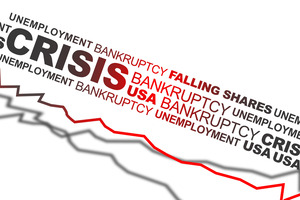
No one ever plans to file for bankruptcy, but sometimes debt is too much to handle. Bankruptcy is a big decision with long-lasting ramifications, so it’s important to be as prepared as possible.
If you’re considering declaring bankruptcy soon, there are a few things you should do to prepare.
1. Educate Yourself
There’s a lot to know about bankruptcy. You must understand the process before you make such a big decision. You can start with books or articles about bankruptcy, but it’s also important to talk to a few bankruptcy lawyers to get their professional input.
Once you have a good understanding of what bankruptcy entails, you can make the most informed decision about whether or not it’s the right option for you.
2. Gather Your Financial Documents
If you decide to go through with bankruptcy, you’ll need to put together a complete financial picture to submit to the court. This includes all of your debts, assets, income, and expenses.
It might be a good idea to create a Chapter 13 or Chapter 7 bankruptcy document checklist. You’ll need records of everything, including:
- Credit card statements
- Medical bills
- Student loans
- Pay stubs
- Bank statements
- Mortgage information
- Car payments
The more documentation you have and the better organized it is, the smoother the bankruptcy process will be.
It’s a good idea to gather and organize your financial documents before you even meet with your attorney. You’ll definitely need to get organized if you decide to file, but it’s helpful to bring all of your information to your initial consultation with a bankruptcy attorney. This makes it easier for them to advise you and help you understand your situation and whether bankruptcy is your best option.
3. Speak with a Credit Counselor and/or Bankruptcy Lawyer
If you’re struggling with debt, talking to a credit counselor may be a good idea even if you don’t end up filing for bankruptcy. A credit counselor assists you with budgeting and developing a plan to get out of debt.
In some cases, they’ll also negotiate with creditors on your behalf or help you take advantage of government programs that can help you get out of debt. Talking to a credit counselor is a good way to get started on the path to financial recovery. This is true whether or not you ultimately decide not to file for bankruptcy.
Where to Begin Compiling Your Chapter 7 Bankruptcy Document Checklist
Filing for bankruptcy is a serious decision that should not be taken lightly. If you’re considering bankruptcy, make sure you educate yourself about the process, gather all of your financial documents, and speak with a credit counselor before you begin the filing process. These three steps ensure that you’re as prepared as possible if you do decide to move forward with filing for bankruptcy. But working with an attorney can make the process easier from beginning to end.
To learn more about filing for bankruptcy or for help with creating a chapter 7 bankruptcy document checklist, contact the Law Offices of Robert M. Geller at 813-254-5696.




























![Signs That You May Need to File Bankruptcy [Infographic]](https://djml3wkzi26ea.cloudfront.net/wp-content/uploads/2021/01/signs-chap7-v-chap13.jpg)
![How To File for Bankruptcy [Infographic]](https://djml3wkzi26ea.cloudfront.net/wp-content/uploads/2020/07/bankruptcy-steps-infographic-web.jpg)










